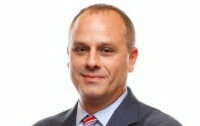No one would ever blame the West Virginia financial services community for the events that led to the 2008 economic crash. However, the Mountain State's lenders are facing the post-crash repercussions with increasing difficulty. On Aug. 20, West Virginia lenders shared their difficulties in a field hearing of the House Subcommittee on Financial Institutions and Consumer Credit that was held in the state capital of Charleston.
Charles Hageboeck, president and CEO of City National Bank in Charleston, W.Va., used his appearance before the subcommittee to detail his experiences from a recent bank examination, which placed a surplus amount of attention on one minor aspect of City National's operations.
{openx:114}
‘An inordinate amount of their time was devoted to the issue of foreclosure practices,’ he recalled. ‘As a result, a tremendous amount of our staff time was devoted to preparing for the examination of our foreclosure practices, which, in the case of City National Bank, made no sense whatsoever. During the prior 12 months, we had 45 foreclosures in our organization – and many of these involved the death of the borrower. In every case, City National officers took the original application, underwrote the loan, were responsible for preparation of all paperwork relating to the loan, closed the loan and processed payments against the loan until payments stopped.
‘We foreclosed on loans that we made and that we knew and then only after exhausting every other available option with our customer,’ he added. ‘No bank really wants to foreclose on real estate. We did nothing wrong, and I think our regulator would agree. But we spent countless hours complying with something that had nothing to do with our company's lending practices.’
William A. Loving Jr., president and CEO of Pendleton Community Bank in Franklin, W.Va., echoed Hageboeck's concerns about the burden of excessive regulation.
{openx:115}
‘Community bank regulatory burden must be reasonable, manageable and calibrated to the actual level of risk [financial institutions] pose to individual customers and to the financial system,’ said Loving. ‘Community banks did not cause the financial crisis, nor have we engaged in abusive practices that were pervasive in the lead-up to the crisis, such as trading in exotic financial instruments or making mortgage loans with little chance of being repaid. Community banks should be shielded from the regulatory onslaught triggered by the crisis.
‘Overreaching and overly complex regulation of community banks is unwarranted and imposes a disproportionate burden on them,’ he continued. ‘Unlike large banks, we don't have large in-house legal and compliance teams and cannot amortize the cost of compliance over a large asset base.’
Loving pointed to an unintended irony of regulatory compliance designed to protect consumers: the decrease in funds originally allocated to support consumer credit.
‘Every dollar spent on compliance is a dollar less that we have to lend and invest in the communities we serve,’ Loving said. ‘Every hour I spend on compliance is an hour I could be spending with customers and potential customers, acquiring new deposits and making new loans. The compliance costs that we are now incurring are vastly out of proportion to any risk we pose.’
Loving also rued that financial regulations have ossified while the financial services industry has evolved.
{OPENADS=zone=52}
‘New regulations have been layered on for decades, but they are rarely repealed or revised,’ he said. ‘The result is a nearly unmanageable burden that is quickly approaching a tipping point where the community banking model is no longer feasible due to excessive regulatory costs.’
Also weighing in at the hearing was a representative of the local credit union industry. According to Tom Brewer, president and CEO of Nitro, W.Va.-based Peoples Federal Credit Union, roughly half of the state's 100 credit unions have assets of less than $10 million, and many only have one or two full-time employees. Brewer complained that the regulatory burden was brutally crushing these small credit unions.
‘Most of the costs of compliance do not vary by size and, therefore, are proportionately a much greater burden for smaller institutions,’ he said. ‘If a smaller credit union offers a particular service, it has to be concerned about complying with most of the same rules as a larger institution – but [it] can only spread those costs over a much smaller volume of business.’
Brewer also warned that the regulatory burden has agitated the state's residents.
‘There is nothing about the current climate of over-regulation that could be considered positive for economic growth in West Virginia,’ he said. ‘Some of the regulations are repetitive and simply confuse consumers. Many of our members feel the disclosures we have to provide them for both deposits accounts, as well as for loans, are excessive. Also, while we understand the importance of complying with the Patriot Act, the many facets it entails when opening an account often frustrates our members.’
It has also impacted the state's affordable housing market, according to J.W. Wohlever, owner of Mountaineer Mobile Homes LLC in Martinsburg, W.Va.
{OPENADS=zone=53&float=right}
‘We believe the reason why community banks have stopped making mobile home loans is because of the Dodd-Frank Act,’ said Wohlever. ‘Community banks, which are either small to medium-size banks, are aware that one of the provisions in Dodd-Frank allows federal regulators to seize and take over a bank if they believe questionable loans are being made or if they believe the bank is not being run properly.
‘So great is the fear of federal intervention that most community banks have curtailed their lending practices and have focused on limited markets such as single-family real estate home loans,’ Wohlever added. ‘As community banks have contracted their lending business, the mobile home community has been particularly hard hit because their lending options have always been more limited.’
Wohlever complained that his attempt to raise private capital to finance mobile home transactions was frustrated by the complexity of the Secure and Fair Enforcement for Mortgage Licensing Act of 2008 and other federal legislation.
‘If we could have done this, we would have set up an equity lending operation and made sensible loans to individuals with poor credit but possessed other positive compensating factorssuch as high savings, long-term steady employment or high income,’ he said.
Phil Hall is the editor of MortgageOrb. He can be reached at hallp@mortgageorb.com.










